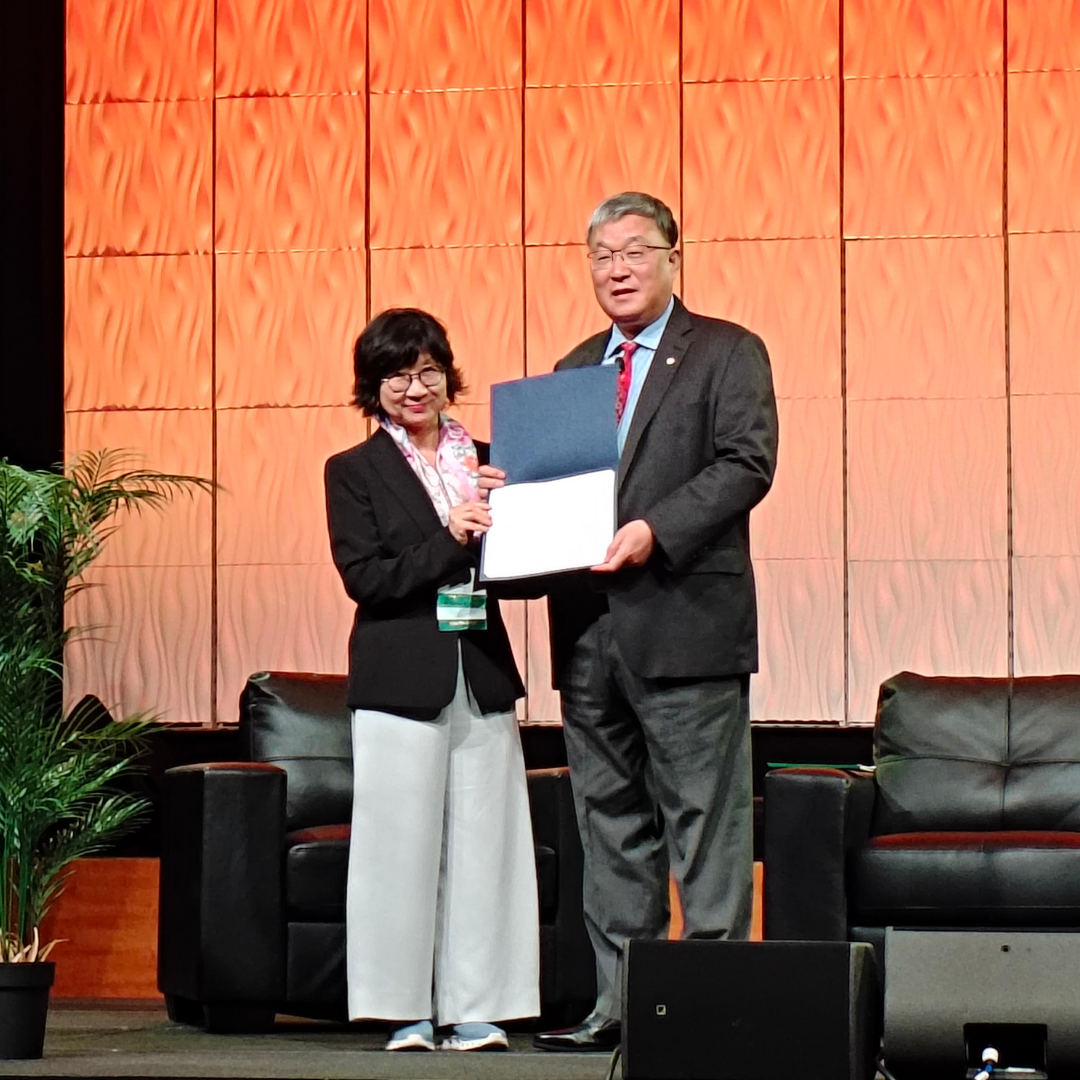Jianjun Shi, the Carolyn J. Stewart Chair and Professor in Georgia Tech’s H. Milton Stewart School of Industrial and Systems Engineering (ISyE), received the 2025 Deming Lecturer Award from the American Statistical Association (ASA). This honor recognizes the outstanding contributions to the advancement of statistical thinking in quality control and industrial statistics. On August 5, Shi took the stage in Nashville, Tennessee, to deliver the prestigious Deming Lecture at the Joint Statistical Meetings (JSM), an annual highlight that celebrates the lasting statistical and leadership legacy of W. Edwards Deming.
In his address, Shi reflected on Deming’s enduring impact on the global quality movement, noting his pioneering quality management principles and his role in popularizing Walter Shewhart’s statistical process control (SPC) techniques in Japan. Researchers often utilize SPC to ensure that production processes operate efficiently, creating more specification-conforming products with less waste scrap.
Shi also discussed the evolving landscape of modern manufacturing, highlighting how increasingly complex processes and the abundance of in-situ measurement data have created a need for a new approach. He introduced a quality engineering framework designed to enhance in-process quality improvement (IPQI) by integrating statistics and data science with engineering expertise and system theory. This approach leverages real-time sensing data to enable process fault detection, root cause diagnosis, automatic compensation, and defect prevention in smart and data rich manufacturing systems.
“Quality control is very important in all manufacturing systems,” said Shi. “Many pioneer works, like Taguchi’s robust design, Shewhart’s SPC control charts, and Deming’s Total Quality Management, have been widely used for quality control applications. However, one critical information, in-site sensing signals that are readily available in manufacturing systems, are typically not used directly for quality improvement. Thus, IPQI takes advantage of in-situ sensing data, combining data science with engineering domain knowledge, for quality improvement, which leads to a paradigm shift in quality control methodology development and implementation.”
The IPQI framework has already demonstrated significant social and economic impact across industries including automotive, aerospace, semiconductor, and steel manufacturing. With advances in sensing technologies, the Internet of Things (IoT), and computational power, as well as the rapid growth of machine learning and data science, Shi believes the IPQI approach is poised to become a cornerstone of smart and autonomous manufacturing systems.
Looking ahead, the continued development of IPQI will require strong interdisciplinary collaboration in both education and research. By bringing together experts from diverse fields, researchers can push the boundaries of IPQI applications and expand its role in shaping the future of advanced manufacturing. The framework not only enhances quality control processes but also represents a key step toward building more efficient, data-driven, and intelligent production systems.
“I am deeply honored and grateful to receive this award, and its recognition of the IPQI concepts, methodologies, and implementations,” Shi shares. “I wish the Deming Lecturer will motivate more researchers and engineers contributing to the IPQI development and implementation in modern production systems."
